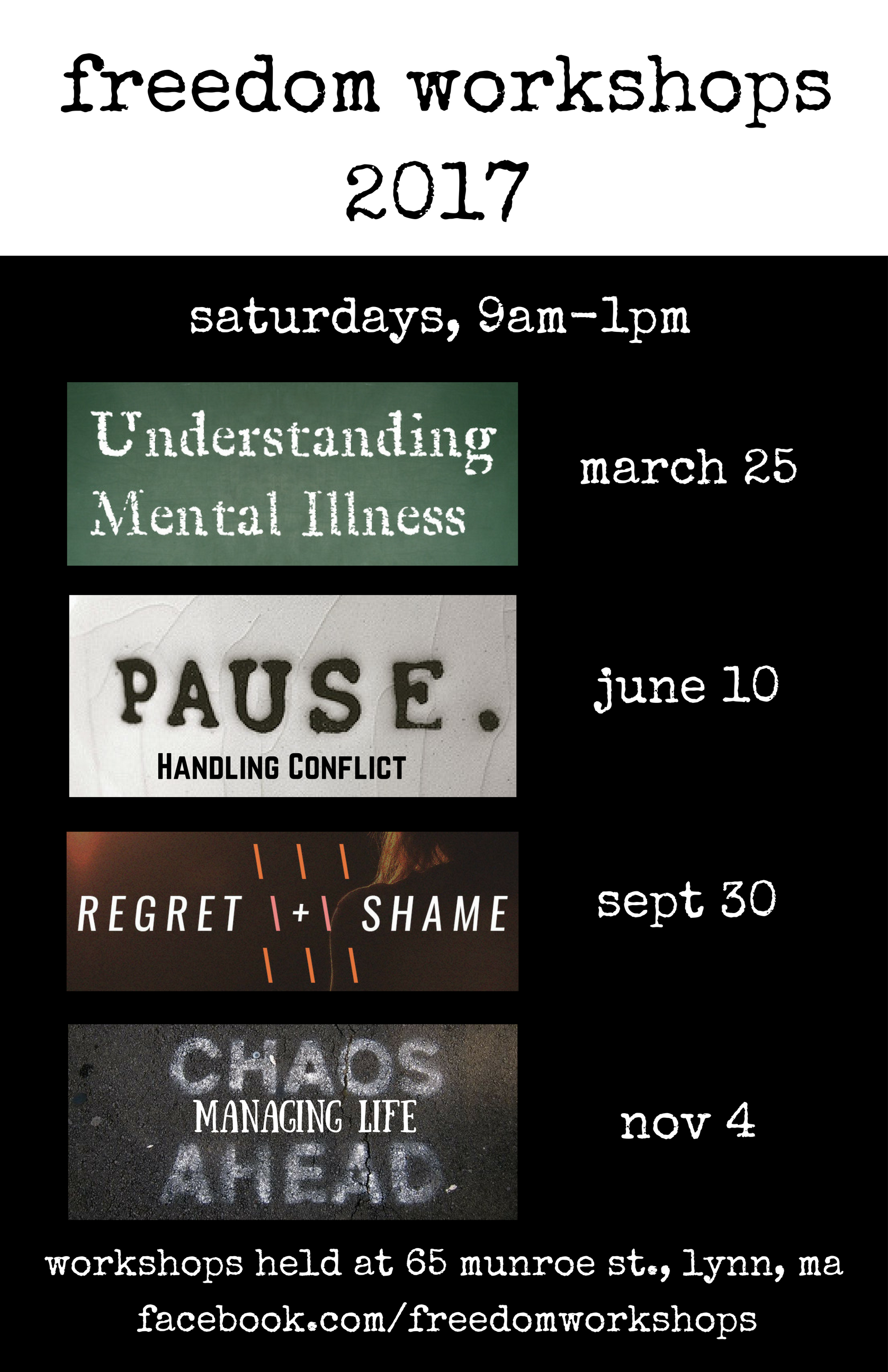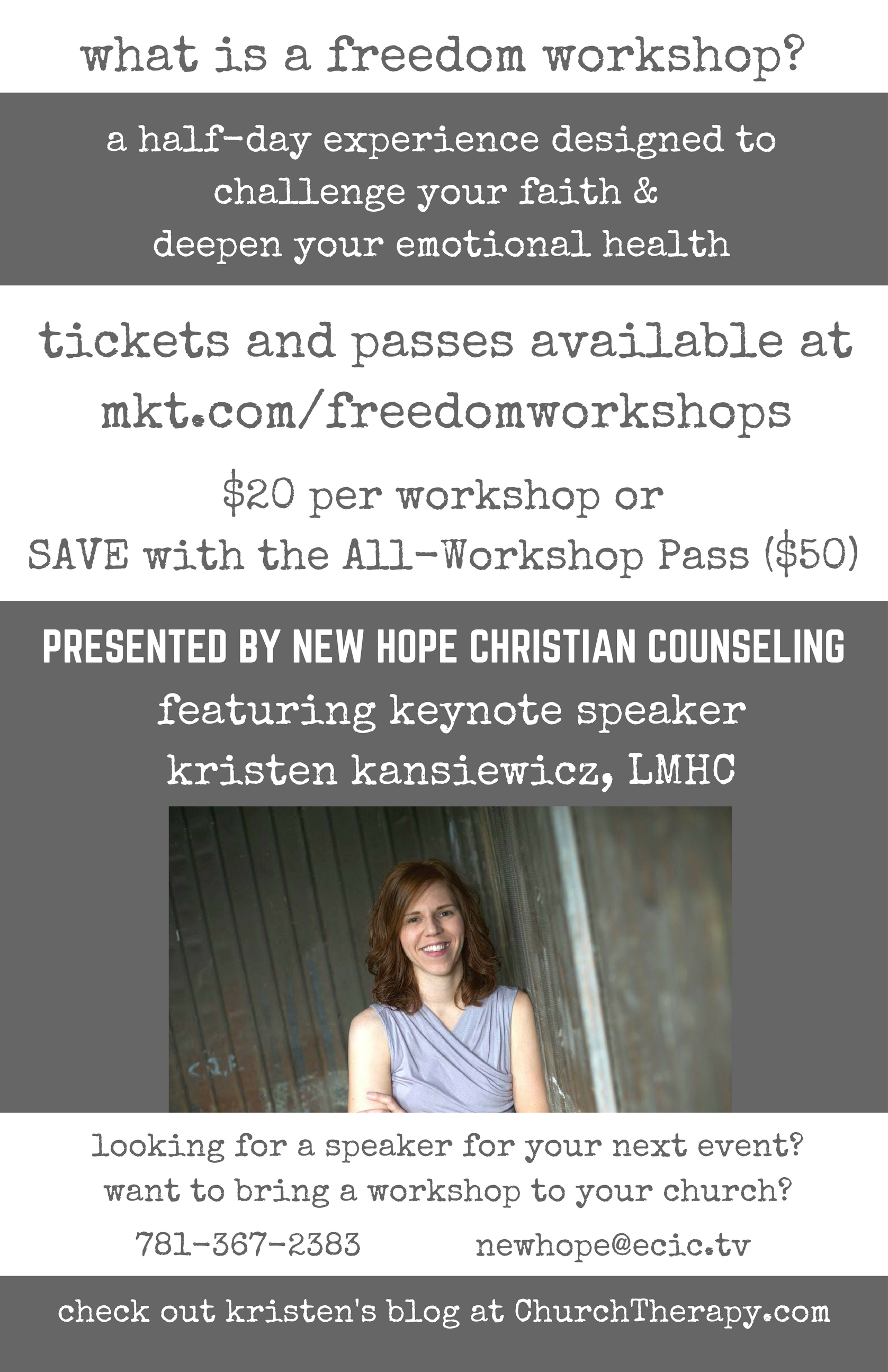Every Sunday, unintended messages are delivered from pulpits around the country. Pastors, tasked with the incredibly difficult job of understanding the Word of God and delivering it in memorable form to their congregations, cannot be expected to be perfect in every word they say. And I would certainly never suggest that perfection is the goal for sermon delivery. However, when we fight the stigma of mental illness, it helps to increase awareness as to the subtle messages that penetrate through our Christian words, whether intended or not.
So what are some of the unintended messages found in sermons (and in Christian conversation)?
1. Your mental illness will go away with increased faith or trust in God.
The symptoms of mental illness are physical. I prefer the term “brain disorder” and I hope that through advances in neuroscience we can get even more precise in our language. While there are many positive steps a person can take to improve their symptoms and create balance in their lives, simply white-knuckling your way into health via sweaty prayers is not going to do it. We have to stop suggesting that this can work. Prayer is powerful and supernatural and absolutely essential. But use prayer towards mental illness in the same way you would use it with other physical disorders.
2.You are doing something sinful or spiritually off track if you experience anxiety or depression.
Victim-blaming happens because it is easier than trying to understand a currently very mysterious physical phenomenon. Our theology makes us feel better when it fits in nice rows of boxes. But life is messy and disorder is ugly and when we don’t have answers we get fidgety. And so, however unintentionally, we victim-blame when we respond to a person with depression by saying, “Have you tried giving it over to God?” or even worse, “Focusing on yourself is selfish and you just need to get out there and serve others.” Or quoting Scripture about anxiety to an anxious person. Every person I have ever met who is experiencing anxiety would LOVE to throw it all at the feet of Jesus and feel better. Unfortunately, the brain does not work that way. Normal, everyday life worries? Sure. But persistent, chronic symptoms? No. There is nothing a person experiencing symptoms of a brain disorder did to cause their illness, nor is there anything spiritual they can do to make it go away. That does NOT mean they are disqualified from the Christian life. Rather, it means we have to understand that sitting in God’s presence and choosing to follow him daily while continuing to experience mental illness is a noble endeavor. Those that maintain their faith in the midst of such darkness are in my mind some of the most amazing Jesus-followers. (And history would agree… the Desert Fathers, Mother Teresa and others experienced periods of deep depression.)
3. Everyone is able to work harder and doing so will result in spiritual (and possibly material) success.
This American message is simply not the message of the Bible. If everyone had the same shot at success, God would not need to mention the oppressed so much. Those who are privileged enough to never experience racial, socioeconomic, gender, biological or intellectual disadvantage often do not understand why not everyone is given the same head start. At times, we marginalize those experiencing depression, anxiety or other brain disorders by viewing them as “lazy” (even if we don’t quite say it but instead just think it when we decide in our minds what they “should” be doing better). Many people I have worked with are simply unable to work because of a mental health condition. On the outside, they might appear able-bodied. But their minds may not provide the stability or stamina required to maintain full-time or even part-time work. We have to watch out for the subtle ways that even in our body language we communicate judgment.
What can we do to correct some of these messages?
1. Talk about mental illness like you talk about cancer.
Those of you that follow this blog or my Twitter handle (@ChurchTherapist) have probably heard my rule on this… If you cannot replace the mental health term in your sentence with the word “cancer” you probably should not say it. About a month ago on Twitter, someone made a comment that “in 10,000 years, all the anxiety you feel right now will seem silly.” Now, they probably were not thinking about mental illness. But when you use the word “anxiety” you are talking to people who experience clinical levels of anxiety whether you want to be or not. So I tweeted back something like, “In 10,000 years from now, all the cancer cells ravaging your body right now will seem silly. Hmm, guess not…” See how that really is completely insensitive and something we would NEVER say to a cancer patient? We have to change our casual language when using mental health terms.
2. Acknowledge the struggle of mental illness from the pulpit as a regular caveat.
Something as simple as, “I know some of you are struggling with anxiety or mood problems that you just can’t seem to shake. Even pastors experience that too” would be a phenomenal start. As you do your sermon prep (or as you engage in conversations in small groups or with friends), think about how what you are saying would sound to someone who is struggling with a life controlling physical problem they cannot make go away. When you talk about Paul’s thorn in the flesh, mention mental illness as another type of thorn. Do all you can to acknowledge and validate the physical reality that disorder can happen in the brain too. And when the brain experiences dysfunction, it is a confusing and frustrating experience.
3. Practice multi-level discipleship.
Not everyone in your church has the same reading level. You have a range of ages, and even among the adults there is likely a variance in education level or intellectual functioning. Yet for some reason we kind of aim for a middle and hope for the best, leaving some to fall through the cracks. Now, if we are only talking about reading level, then it is possible a mentor would come alongside to help a person understand the Bible better (or give them an easier version to read). But what about the varying biological and emotional capacities that occur in our churches? Not everyone is able to show up for the potluck. Is that the only option in your church for developing community? If it is, the person with social anxiety disorder will never get to connect. Does being plugged into ministry mean you are on a schedule and you have to show up on that schedule or you’re off the team? If so, someone who experiences depressive episodes or chronic pain issues will end up disqualified. Be creative, finding ways to make accommodations for those who are struggling emotionally or physically. Disciple each person from where they are at, rather than expecting them to rise to a certain capability in a set amount of time.
Ultimately, we must all watch out for the ways in which the American cultural ideals of success and achieving your dreams by pulling yourself up by your bootstraps work their way into our conversations and theology. God’s heart is for the poor, the oppressed, the disabled, the marginalized and the hurting. As the Church, we must practice an embrace that is as safe as Jesus’ — not full of judgment and condemnation but rather full of love and restoration. We cannot give up on those who are unable to follow our “normal” growth tracks. We must patiently walk alongside, offering support, help and hope.











